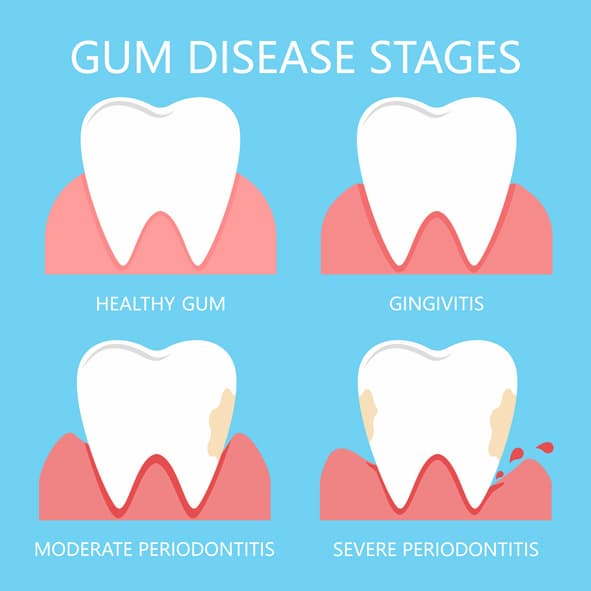Gingivitis
What Causes Gingivitis?
When plaque builds up on your teeth and isn’t removed by careful brushing and flossing, it can turn into an even harder substance called tartar. Tartar builds up at the base of your teeth, irritating your gums and create an area where more plaque builds on top of the tartar and continues to cause more irritation to the gum tissue.
While most gingivitis is caused by poor dental care, there are other factors that can contribute to gum disease. Gingivitis is more prevalent in pregnant women, for example, as well as those going through puberty or menopause, since hormonal changes affect the bacteria in your mouth, according to the U.S. National Library of Medicine. Smoking, diabetes and vitamin deficiencies can also increase your risk of gingivitis.
How Can You Tell if You Have Gingivitis?
The first indication that you might have gingivitis is a small amount of blood on your toothbrush or in the sink when you brush your teeth. You might also notice that your gums are redder and are less firm than they should be. Your dentist and dental hygienist can diagnose gingivitis just by visually looking at your gums, so if you are concerned you may have gingivitis, you should make an appointment as soon as possible.
Is Gingivitis Curable?
Gingivitis can be reversed by eliminating the tartar that’s causing the irritation in your gums. Your dental professional can remove the existing tartar that’s irritating your gums by cleaning and scaling your teeth. After a professional cleaning, keep your teeth and gums free from tartar by brushing twice daily with a tartar-control toothpaste and flossing at least once a day. Using an antimicrobial mouthwash after brushing can also help prevent tartar buildup on your teeth. By brushing and flossing well, you can have regular, healthy gums again.
